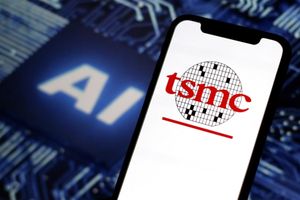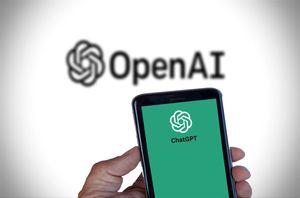– Dosed first patient in IGNITE Phase 2 clinical trial to evaluate VGL101 in patients with ALSP –
– Presented interim data from natural history study, ILLUMINATE, at Company-hosted ALSP KOL event in December 2022 –
– Appointed David Gray, Ph.D., as Chief Science Officer –
WATERTOWN, Mass., March 21, 2023 (GLOBE NEWSWIRE) -- Vigil Neuroscience, Inc. (Nasdaq: VIGL), a clinical-stage biotechnology company committed to harnessing the power of microglia for the treatment of neurodegenerative diseases, today announced financial results for the fourth quarter and full year ended December 31, 2022 and provided an update on recent progress.
“In 2022, we made considerable progress in advancing VGL101 and our small molecule TREM2 agonist program through significant clinical and preclinical milestones, respectively. We shared important data for VGL101 including encouraging interim topline data from our ongoing Phase 1 healthy volunteer trial and informative interim data from ILLUMINATE, our natural history study of ALSP patients. We also initiated IGNITE, our Phase 2 proof-of-concept trial of VGL101 in patients with ALSP, which is the first interventional clinical trial in this indication. We look to continue to build upon that momentum with several anticipated milestones in 2023, including the full data readout from our VGL101 Phase 1 trial and six-month interim data from IGNITE,” said Ivana Magovčević-Liebisch, Ph.D., J.D., President and Chief Executive Officer of Vigil. “Furthermore, we made great strides in advancing our small molecule TREM2 agonist program and are on track to submit an IND for our lead small molecule candidate and initiate clinical development, with an initial focus on Alzheimer’s disease in genetically defined subpopulations, in the second half of 2023.”
Recent Highlights and Anticipated Milestones
VGL101, Monoclonal Antibody TREM2 Agonist
- Initiated IGNITE, a Phase 2 proof-of-concept trial in ALSP: In December 2022, Vigil announced its first patient had been dosed in the Phase 2, proof-of-concept clinical trial evaluating VGL101, a fully human monoclonal antibody TREM2 agonist, in patients with adult-onset leukoencephalopathy with axonal spheroids and pigmented glia (ALSP). IGNITE, the first interventional trial in ALSP, is a global Phase 2, open-label trial designed to evaluate the safety and tolerability of VGL101 in up to 15 patients with symptomatic ALSP who have a CSF1R gene mutation. Patients enrolled in the trial will receive an intravenous (IV) infusion of 20 mg/kg of VGL101 approximately every four weeks, for a treatment duration of one year. The Company expects to report six-month interim data for six patients from this Phase 2 study in the second half of 2023.
- Reported interim data from ongoing natural history study, ILLUMINATE: In December 2022, Vigil hosted a ALSP Key Opinion Leader (KOL) event and reported interim data from its ongoing ILLUMINATE study, the first natural history study in ALSP patients with mutations in the CSF1R gene. At six months, volumetric magnetic resonance imaging (MRI) findings showed a greater disease progression for symptomatic versus prodromal participants based on greater reductions in brain tissue volume, and greater increases in white matter lesion and ventricular volumes. In addition, baseline levels of fluid biomarkers including soluble CSF1R (sCSF1R) and neurofilament light chain (NfL) were found to be altered in ALSP individuals. At six months, sCSF1R levels were significantly reduced in prodromal and symptomatic individuals versus healthy volunteers and NfL levels were significantly increased in symptomatic individuals, reflecting active neurodegeneration.
- Reported interim data from the ongoing VGL101 Phase 1 trial: In November 2022, Vigil reported interim topline data from this Phase 1 trial in healthy volunteers in the United States and Australia. Based on these data, VGL101 was found to be safe and well-tolerated at doses up to 40 mg/kg single ascending dose (SAD) and 20 mg/kg multiple ascending dose (MAD). VGL101 showed a linear, predictable PK profile at all doses administered and a half-life that supports monthly IV dosing. VGL101 achieved dose dependent, durable decreases in levels of soluble TREM2 (sTREM2) in the cerebrospinal fluid (CSF) demonstrating proof of target engagement. VGL101 20 mg/kg repeat dosing was associated with robust reduction in sTREM2 levels and reduced levels were still observed 28 days after the third and final dose. VGL101 is the first antibody reported to demonstrate durability of TREM2 engagement in a clinical setting. The Company has completed dosing SAD cohorts up to 60 mg/kg, has initiated dosing of a 60 mg/kg MAD cohort in Australia and expects to report the full data analysis from the Phase 1 trial in the second half of 2023.
Small Molecule TREM2 Agonist Program
- Continued to advance small molecule TREM2 agonist program towards the clinic: The Company’s first-in-class, orally available and highly CNS penetrant small molecule program is designed to activate TREM2 for the treatment of common neurodegenerative diseases. Vigil has established that its small molecules have a different mechanism of action and bind to a different site than VGL101, providing the potential for additional optionality in positioning these molecules in different patient populations and potential differentiation from TREM2 antibody therapeutics. Vigil’s highly active, selective and brain-penetrant small molecule agonists are designed to act as a molecular glue that potentiates the TREM2 signaling response to natural damage ligands. Vigil has established that its small molecule agonists demonstrate on-target TREM2 activation across both common and rare TREM2 variants. Additionally, the Company has demonstrated that its small molecule agonists were able to deliver in vivo TREM2 responses within the CNS at a magnitude and specificity similar to VGL101. The Company expects to submit an Investigational New Drug (IND) application with the U.S. Food and Drug Administration (FDA) and, subject to FDA clearance of the IND, initiate clinical development for its lead small molecule TREM2 agonist, with an initial focus in genetically defined Alzheimer’s disease subpopulations, in the second half of 2023.
Corporate
- Appointed David Gray, Ph.D. as Chief Science Officer: On December 15, 2022, Vigil announced the appointment of David Gray, Ph.D. as Chief Science Officer, effective February 27, 2023. Dr. Gray previously served as Chief Scientific Officer of Inscopix, where he led the development of its first therapeutic research programs. Prior to Inscopix, he was Vice President of Chemistry at Cerevel Therapeutics, where he led the development of late-stage clinical programs for Parkinson’s disease and Alzheimer’s disease and was responsible for advancing early-stage programs. Before that, Dr. Gray held several roles during his 16 years at Pfizer, including Senior Director, Neuroscience Biology.
Upcoming Events
- Vigil plans to participate in a fireside chat at the Stifel 2023 CNS Days virtual conference on Wednesday, March 29, 2023, at 12:00 PM ET.
- Vigil plans to give an oral presentation highlighting preclinical data from the characterization of its small molecule TREM2 agonist program for the potential treatment of Alzheimer’s disease at the AD/PD, Alzheimer’s & Parkinson’s Diseases International Conference taking place March 28-April 1, 2023, in Gothenburg, Sweden. The Company will also present a poster summarizing its work in leveraging precision medicine for TREM2-targeted therapeutics in Alzheimer’s disease.
- Vigil plans to provide three oral presentations and two poster presentations on its lead indication for VGL101, ALSP, at the 2023 American Academy of Neurology (AAN) Annual Meeting taking place April 22-27, 2023, in Boston, MA.
Fourth Quarter and Full Year 2022 Financial Results
- Cash Position: Cash and cash equivalents were $186.6 million as of December 31, 2022. The Company expects its cash and cash equivalents to fund its operational plans into the first quarter of 2025.
- R&D Expenses: Research and development expenses were $12.2 million for the fourth quarter and $47.4 million for the year ended December 31, 2022, compared to $9.1 million and $32.3 million for the same periods in 2021. The increase year over year was primarily attributable to costs related to preclinical studies for the Company’s small molecule program, increased clinical trial related expenses for the VGL101 program due to the transition from preclinical studies to initiation of the Phase 1 clinical trial in the fourth quarter of 2021 and the initiation of the Phase 2 clinical trial in the fourth quarter of 2022, and increases in headcount to support the Company’s continued growth.
- G&A Expenses: General and administrative expenses were $6.7 million for the fourth quarter and $21.4 million for the year ended December 31, 2022, compared to $3.9 million and $10.1 million for the same periods in 2021. The increase year over year was primarily attributable to headcount-related costs and other operating costs associated with operating as a public company.
- Net Loss: Loss from operations were $18.5 million for the fourth quarter and $68.3 million for the year ended December 31, 2022, compared to $13.0 million and $43.3 million for the same periods in 2021. The increase year over year was primarily attributable to higher operating costs in the current period to support the continued advancement of the Company’s pipeline.
About Vigil Neuroscience
Vigil Neuroscience is a clinical-stage biotechnology company focused on developing treatments for both rare and common neurodegenerative diseases by restoring the vigilance of microglia, the sentinel immune cells of the brain. We are utilizing the tools of modern neuroscience drug development across multiple therapeutic modalities in our efforts to develop precision-based therapies to improve the lives of patients and their families. VGL101, our lead candidate, is a fully human monoclonal antibody agonist targeting human triggering receptor expressed on myeloid cells 2 (TREM2) and is in a Phase 2 proof-of-concept trial in patients with adult-onset leukoencephalopathy with axonal spheroids and pigmented glia (ALSP), a rare and fatal neurodegenerative disease. We are also conducting IND-enabling studies with a novel small molecule TREM2 agonist program to treat common neurodegenerative diseases associated with microglial dysfunction, with an initial focus on Alzheimer’s disease (AD) in genetically defined subpopulations.
Forward-Looking Statements
This press release includes certain disclosures that contain “forward-looking statements” of Vigil Neuroscience’s (“Vigil” or the “Company”) that are made pursuant to the safe harbor provisions of the federal securities laws, including, without limitation, express or implied statements regarding: the Company’s strategy, business plans and focus; the progress and timing of the preclinical and clinical development of Vigil’s programs, including the availability of data and expected timing for reporting data from the VGL101 Phase 1 trial and six-month interim data from IGNITE, the availability of data and expected timing for reporting data from its Phase 2 proof-of-concept trial in the second half of 2023 and the filing of an IND application for its small molecule TREM2 agonist program in 2023; expectations regarding the development of VGL101 in ALSP and other indications, including its best-in-class potential and the expected therapeutic benefits; expectations regarding the development of its small molecule TREM2 agonist program in Alzheimer’s disease (AD); expectations regarding the development of other pipeline candidates; beliefs about the profile of VGL101 and the Company’s other pipeline candidates, including as to its safety and tolerability; the Company’s cash runway into first quarter of 2025, expectations regarding the use of capital, expenses and other financial results in the future. Forward-looking statements are based on Vigil’s current expectations and are subject to inherent uncertainties, risks and assumptions that are difficult to predict. Factors that could cause actual results to differ include, but are not limited to, risks and uncertainties related to uncertainties inherent in conducting and reporting data analyses; the identification and development of product candidates, including the conduct of research activities and the initiation and completion of preclinical studies and clinical trials; uncertainties as to the availability and timing of results and data from preclinical and clinical studies; the timing of the Company’s ability to submit and obtain regulatory clearance for investigational new drug applications and initiate additional clinical trials; whether results from preclinical studies and early interim data will be predictive of the results of later preclinical studies and data readouts, and other clinical trials; the Company’s ability to initiate and complete its current and expected clinical trials and its ability to work with the FDA to successfully remove the partial clinical hold; whether Vigil’s cash resources will be sufficient to fund its foreseeable and unforeseeable operating expenses and capital expenditure requirements; uncertainties associated with the impact of the COVID-19 pandemic on its business and operations; as well as the risks and uncertainties identified in the Company’s filings with the Securities and Exchange Commission (SEC), including Vigil’s IPO registration statement, its Annual Report on Form 10-K and its Quarterly Report on Form 10-Q for the quarter ended September 30, 2022 and in any subsequent filings it may make with the SEC. Forward-looking statements contained in this announcement are made as of this date, and Vigil undertakes no duty to update such information except as required under applicable law. Readers should not rely upon the information on this page as current or accurate after its publication date.
| VIGIL NEUROSCIENCE, INC. | ||||||||||||||||
| Consolidated Statements of Operations | ||||||||||||||||
| (in thousands, except share and per share data) | ||||||||||||||||
| (unaudited) | ||||||||||||||||
| Three Months Ended | Year Ended | |||||||||||||||
| December 31, 2022 | December 31, 2021 | December 31, 2022 | December 31, 2021 | |||||||||||||
| Operating expenses: | ||||||||||||||||
| Research and development | $ | 12,191 | $ | 9,119 | $ | 47,444 | $ | 32,330 | ||||||||
| General and administrative | 6,682 | 3,858 | 21,440 | 10,079 | ||||||||||||
| Total operating expenses | 18,873 | 12,977 | 68,884 | 42,409 | ||||||||||||
| Loss from operations | (18,873 | ) | (12,977 | ) | (68,884 | ) | (42,409 | ) | ||||||||
| Other income (expense): | ||||||||||||||||
| Change in fair value of the related party antidilution obligation | — | — | — | (836 | ) | |||||||||||
| Change in fair value of Series A preferred stock tranche obligation | — | — | — | (28 | ) | |||||||||||
| Interest income, net | 426 | — | 623 | 3 | ||||||||||||
| Other income (expense), net | (9 | ) | (8 | ) | (44 | ) | (13 | ) | ||||||||
| Total other expense, net | 417 | (8 | ) | 579 | (874 | ) | ||||||||||
| Net loss and comprehensive loss | $ | (18,456 | ) | $ | (12,985 | ) | $ | (68,305 | ) | $ | (43,283 | ) | ||||
| Net loss per share attributable to common stockholders, basic and diluted | $ | (0.48 | ) | $ | (8.28 | ) | $ | (2.16 | ) | $ | (28.26 | ) | ||||
| Weighted—average common shares outstanding, basic and diluted | 38,479,196 | 1,567,303 | 31,685,125 | 1,531,686 | ||||||||||||
| VIGIL NEUROSCIENCE, INC. | ||||||||
| Selected Balance Sheet Data | ||||||||
| (in thousands) | ||||||||
| (unaudited) | ||||||||
| December 31, 2022 | December 31, 2021 | |||||||
| Cash and cash equivalents | $ | 186,605 | $ | 91,420 | ||||
| Total assets | 200,393 | 102,441 | ||||||
| Total liabilities | 11,312 | 9,945 | ||||||
| Total stockholders' equity (deficit) | 189,081 | (69,443 | ) | |||||

Investor Contact: Sarah Carmody scarmody@vigilneuro.com Media Contact: Megan McGrath MacDougall Advisors mmcgrath@macdougall.bio






